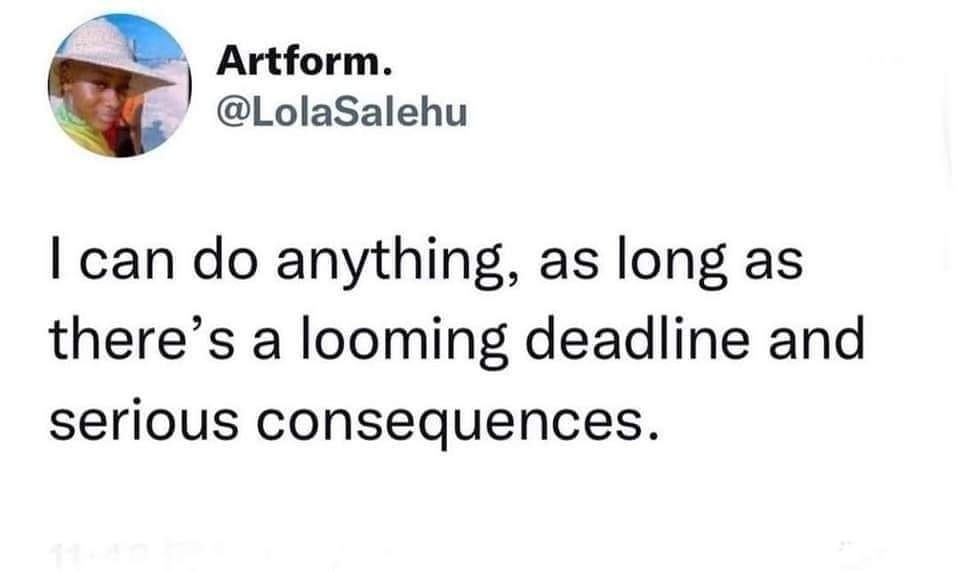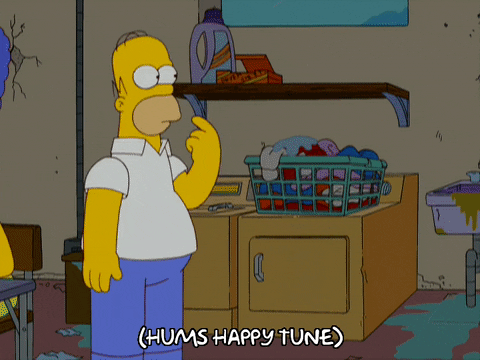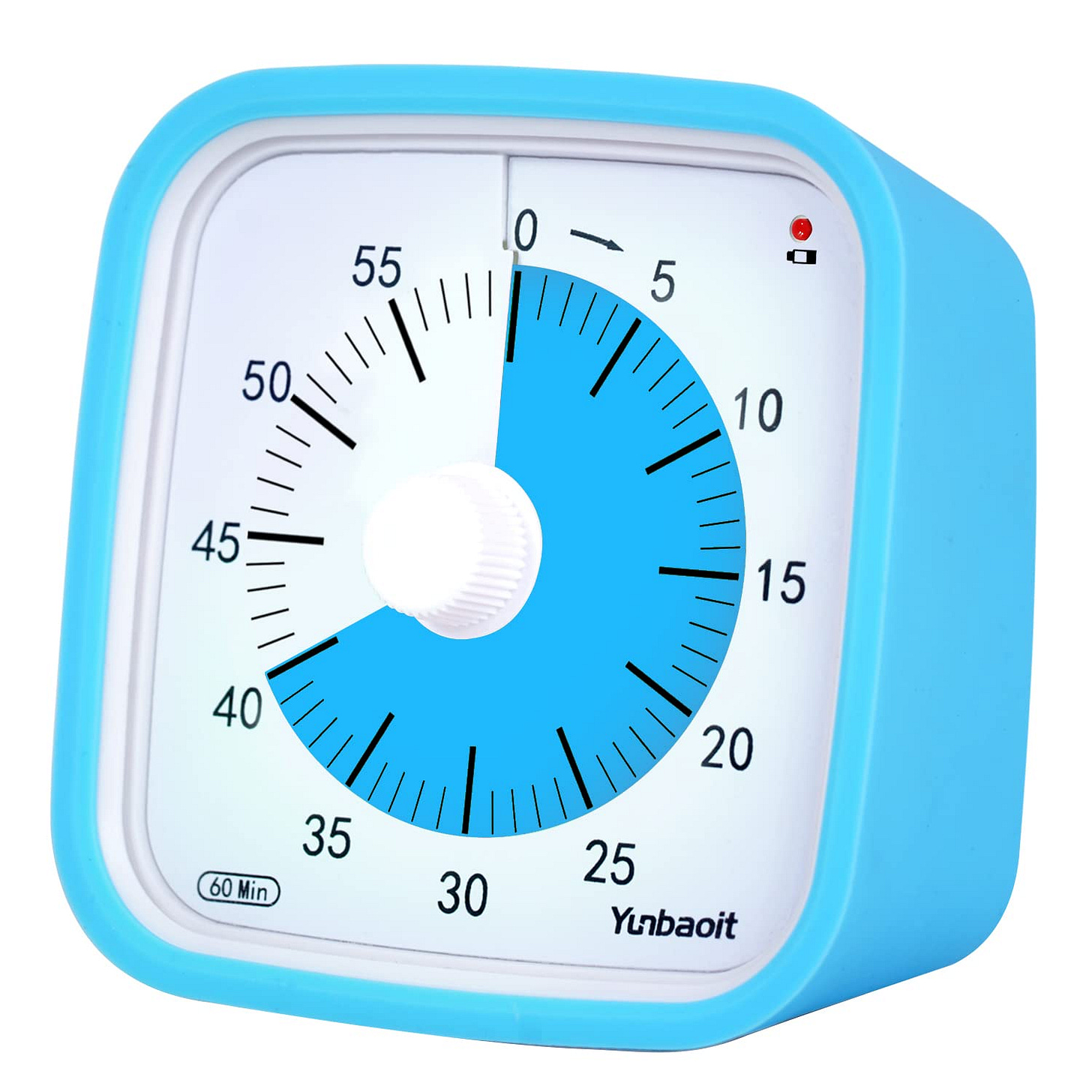Task and Time Management
I have always struggled with organizing my life in such a way that I am able to do what I want and need to do without eventually feeling overwhelmed, lost, or burnt out. When I have multiple tasks to get done I have a hard time prioritizing them and usually end up procrastinating or not doing them at all.
This cycle has always made me feel broken and ashamed.
It was such a MASSIVE relief to find out over the last few years that I am neurodivergent (Autistic and ADHD) which means my brain and biology work differently than those who are neurotypical. The common term for struggling with the daily tasks of life is “Executive Dysfunction”.
However, the more I learn from other neurodivergent folks and the more I incorporate accommodations and neurodivergent “life hacks” into my life, the more I feel I am only “dysfunctional” (isn’t this a really negative word to use to describe a human?) when compared to neurotypical folks.
In reality, I function pretty dang well when I let go of the “typical ways” of doing things and find ways which work best for me.
Below I will share some of the things my therapist and I have been working on. Please keep in mind that everyone is different and what works for me/my family may not work for you. Keep anything that works and forget the risk.
SCHEDULES AND TASK MANAGEMENT
When I handed my therapist a mock-up of the daily schedule I would like to work towards, she looked at me like this:
Her: “So, do you feel it’s necessary to schedule something into every 30 minutes of your life? Or could we maybe…not…do that?”
Me: “Sure! So, like, every hour, then!?”
To say I was a little ambitious may be an understatement. Go big or go home!
Before we could talk about planning my daily schedule, we needed to talk about tasks and task management. She started by saying that having a long daily list of tasks that are not assigned to any particular day or time can be challenging for folks who struggle with time management (It ME!).
But at the same time, having a long daily list of tasks that are assigned to very specific times to be completed can be overwhelming and impractical.
She wanted to introduce me to a way of scheduling my day that isn’t too loose nor too rigid where I can divide my day into blocks of time and then add my tasks to the best time block. Instead of scheduling tasks to be completed at specific times, this gives me more wiggle room…but not too much.
Clearly, there are certain things we have to do at specific times like a scheduled meeting or a doctors appointment, but for the tasks that can get done at anytime, it is best to create a more flexible schedule where tasks can be assigned to a broader time window.
She gave me several examples of how people might choose to block their day. I chose breaking my day into 3 blocks: Morning, Afternoon, and Evening. (Some people might need more or less blocks of time.)
So let’s say I have 5 tasks I want to complete in a day. These tasks are: Walk, Write, Dust, Laundry, Call Best Friend (and none of them are time sensitive).
In order to assign each of my 5 tasks to the proper time block (Morning, Afternoon, or Evening) that day, I look at the time-sensitive events already scheduled (pick up kids from school, etc), and then assign the 5 tasks I want to accomplish between those time-sensitive events in the time block which makes the most sense.
For example, I could assign my Walk and Writing to the Morning block, Call Best Friend and Dust to the Afternoon block, and Laundry to NEVER the Evening block.
I can complete these tasks at any time during the assigned block time without having to pick a specific time (ie, I don’t have to take my walk at 8am on the dot, I can take it between 7:30 and noon).
This way of organizing my schedule works best for me because the ADHD part of me needs flexibility and novelty to stay focused and motivated, but the Autistic part of me strives on set routines and clear expectations.
Another thing we talked about was how to break down a bigger task into smaller tasks.
For example, instead of dusting my entire house on a Tuesday, I can dust a different area or room of my house each day that week. For some folks, focusing and getting it all done at once is most effective and less overwhelming than thinking of having to do a little of it every day. But for me, I procrastinate if I don’t feel like dusting my whole house when dusting comes up on my task list. If I can dust one room a day and feel accomplished, then that is the best way for me to do it.
Another thing we talked about was the concept of “natural timers” when it comes to finding easier ways to get tasks done.
For example, I started taking walks while I was waiting for one of the kiddos to be done with Occupational Therapy or waiting for my kids to walk to my car after school. The natural timer in these situations is, I have 30 minutes to complete them while I would normally just be waiting.
Another natural timer is wiping down the kitchen counters while I wait for my coffee to brew. Instead of just standing there, I can use the natural timer of the coffee brewing cycle to complete a quick task.
Speaking of timers, did you know neurodivergent people can experience time blindness?
Time blindness is when you have difficulty accurately perceiving time. People with time blindness might be perpetually late or early because they don’t have a true concept of how much time it actually takes to drive 15 miles or walk 3 blocks.
When my kids have 35-45 minutes on weekday mornings to complete their morning routine before school, they don’t really have the time awareness and management skills to break down each morning activity into how long each usually takes and then strategize a way to complete all of them before time is up.
One thing that has helped all of us with our time blindness is using visual timers like this one:
We can look at the blue area to know how much time we have left visually, which works so much better than being told verbally how much time we have left. These kinds of timers have been far more effective than any other I’ve tried. And I’ve tried A LOT.
But the best advice my therapist gave me regarding task management was for me to assign tasks to others when possible.
Unfortunately for women in hetero partnerships/marriages, women tend to do the majority of home and family management, even if we work full time.
Home and family management isn’t just about task management. Women tend to carry the majority of the mental and emotional load of family life as well. We are expected to be the “rememberer” of the family and keep track of and plan for every birthday or celebration, remember all the docs appointments, and assign tasks to everyone and help them remember to do them. Being a “rememberer” is especially challenging for women who are neurodivergent because issues with memory are a common execution function challenge for us.
We are also expected to be the “noticer” of the family and be responsible for helping everyone manage their feelings, moods, and needs (unspoken or otherwise). This is, of course, not healthy for anyone involved, but it is especially difficult for neurodivergent women who struggle themselves with identifying their own feelings and needs.
Ugh, SOCIETYYYY!!!! WHY you gotta BE like this!?
All complaints about society’s love affair with unhealthy gender roles and norms aside, giving my (pre-assigned by stupid society just because I am a woman) home and family tasks away for others to be responsible for has helped me greatly with overall life satisfaction. AND it has given everyone in the family the opportunity to practice “community care”. Whether at home, work, school, place of worship, or the community where you live, sharing the load of responsibilities with the others in which you share space is an excellent way to care for and love people well.
When I give T a task instead of doing it myself, he knows he is full responsible for it. I will not remind him, nag him, or be passy-aggressy with him about whether he does it or not. He knows he is responsible for letting me know if he can’t do a task or needs help with something and ask me if I will do it, instead of assuming I will do it if he leaves it undone.
Of course, this means I also have to let go of control of HOW the task gets done by others. I’ve had to ask myself, “Is it more important that the task be done the exact way I would prefer, OR would I just like the task to be done?”
Answer: I would rather someone else do a task in whatever way they want as opposed to having to do it myself. AMEN.
I still have to be responsible for my kids tasks (reminding them and such) because they are still kids and are learning task management as well. Cool thing is, they are mostly learning task management from me, since I am their primary caregiver, which is truly hilarious and an absolute damn shame for them.
I will continue to share more of what I am learning on my journey to make daily life as a neurodivergent person much more enjoyable and manageable. But before I go, I want to share the main thing I have learned that has helped me immensely when it comes to task management.
Minimizing and simplifying is one of the best ways to prevent or heal from burn out and overwhelm.
Do less and find a way to be okay with it.
Stop comparing yourself to everyone else around you and live your life in a way that brings you satisfaction and peace.
Hustle culture isn’t good for anyone, neurodivergent or not.
Instead of hustle culture, we should have a cultural movement focused on setting healthy boundaries for ourselves and others that allow a more peaceful, joyful, balanced and fulfilling life.
On that note: Please join my nap and post-apocalyptic-tv-show binge-watching cult. We meet NEVER because we are tired and just want to watch The Last of US in peace.
TASK AND TIME MANAGEMENT RESOURCES (not advertisements):
Sweepy App: There are tons of great apps to help with organization and task management, but the one that has helped me the most with taking big cleaning tasks and turning them into smaller daily tasks is the Sweepy App. This app is highly customizable and allows you to create tasks for each room or area of your home, assign these tasks to others (they just need to also download the app), choose how many tasks per day you want to be assigned, and choose how often you want to be reminded to do a task. It feels good to check tasks off each day and the fact that the tasks can offer variety helps me stay focused.
Paper planners don’t work for me. I love buying planners, but I definitely don’t love using them for long. (The exeption was when I used a planner to organize our Homeschool. I depended on my planner, that was designed specifically for homeschoolers, to keep everything organized and in one location.) What does work for me is putting things I need to do at a particular time on my phone’s calendar. I also use my reminders app, notes app, and alarm app extensively. I depend on these apps in my daily life and the best part is, everything is on my phone and smart watch which I always have with me.
Paper planners may not work for me, but having a notebook around to take notes in is very helpful for me. When I am on the phone chatting with a friend, one of the ways I keep myself from interrupting to ask a question or share a thought is to write down my question or thought in a notebook. That way I can stop worrying about forgetting what I was thinking and can focus on what they are saying. I have notebooks everywhere so that if a business calls me and I need to remember what they are telling me, I can grab a notebook and jot it down.
The Book How to Keep House While Drowning is amazing! It is written with neurodivergent folks in mind but it’s a great book for anyone who wants to feel better about how challenging it can be to stay organized while feeling overwhelmed.
People and groups to follow on social media in regards to neurodivergent task management:
Facebook: Executive Dysfunction Meals, Executive Dysfunction Hack and Tips,Executive Functioning Toolbox,The Life Skills Lady, Neurodivergent Cleaning Crew, Neurodivergent Life Hacks
In order to give some of my tasks away to others, I had to first figure out exactly what all the family and household tasks and responsibilities were. So I made a handy dandy Household Task Spreadsheet. I listed every single task and responsibility and then separated them into groups of daily, weekly, monthly, every few months, and yearly…and COLOR CODED THEM BAYBEE! After that, I added columns for me, T, and each kiddo. Then I added a check mark under the name of the person who was responsible for that task at that time. Unsurprising most of the check marks were in my column. I then sent the spreadsheet to T and scheduled a time for us to chat about moving responsibilities out of my column and into someone else’s. We revisit this list periodically and change things around to fit our lives and needs.









Love your life hacks and the visuals you use are perfect. I feel ya! I see you too. ♥️